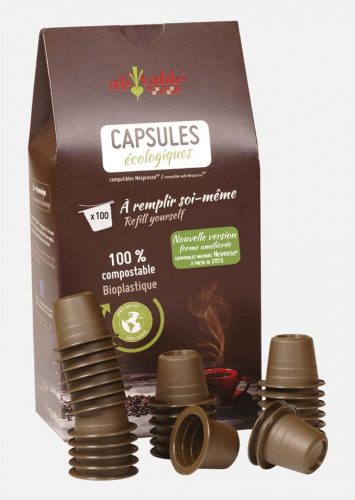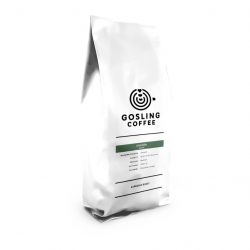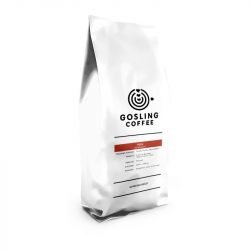Buying fair trade and organic coffee is an eco-friendly practice that every conscious consumer should embrace.
Why? Because coffee is one of the most widely traded commodities in the world…
But meeting that demand has come with a costly price.
Over time, farming methods have been developed to maximize production, but often at the expense of human and environmental health.
Why buy organic coffee?
Let’s see the most important reasons to stay away from conventional coffee brands:
- Chemicals. Conventional coffee is among the most heavily chemically treated foods in the world (it uses synthetic fertilizers, pesticides, herbicides, fungicides, and insecticides). This impacts the consumer, the producer and the neighboring communities. Organic coffee, instead, doesn’t use chemicals and relies on organic fertilizers, like coffee pulp, chicken manure, or compost.
- Forests. Conventionally grown coffee plants are hybrids developed to flourish in the open sun. Therefore, lots of forests are cleared to make space for them. Production increases, but the flora and fauna of the ecosystem are destroyed. The loss of natural fertilizers (bird droppings, leaf litter, and natural decay) and the overpopulation of coffee-ruining insects means more pesticide use. And when it rains, the lack of tree cover means there is increased water runoff, which erodes and degrades the soil (and that ends up in water supplies). A terrible vicious cycle with dire consequences.
Most organic coffee is grown the natural way, within the shade of lush forests. Shade grown coffee plantations include a diverse array of tree species that provide a shade-giving canopy over the coffee plants. These coffee plantations are a rich source of oxygen for the environment and work on removing greenhouse gasses like carbon dioxide. This practice sustains soil fertility and keeps unique regional ecosystems alive, that are better equipped to handle the unusual weather patterns that result from climate change. - Global Warming. The production of conventional coffee means increased greenhouse gas emissions and soil erosion, while organic coffee has a smaller carbon footprint and conserves & builds soil health. It encourages sustainability, multilayered crop production and a rich array of wildlife.
- Water. The Dutch NGO Water Footprint Network estimates that a standard European cup of coffee or espresso (125 ml) requires 140 liters of water – which is to say that one part of coffee consumes 1100 parts of water. Eco-friendly, organic farms use much less water and make an effort to dispose of it properly.
- Working conditions. Most conventional coffee brands pay low wages to farmers and expose them to harmful chemicals in the process. Organic coffee brands support the fair treatment and payment of farmers and employees, without exposing them to harmful chemicals. Their work improves the local community economically, socially and environmentally.
- Taste. Organic and fair trade coffee is richer in flavor and free from chemicals. Just like a fresh, homegrown tomato is more flavorsome than a supermarket one, coffee that is produced from good farming, using no chemicals and growing it in its natural state will taste better. Plus, since workers are treated and paid fairly, they tend to take better care of their crops and the way they are harvested.
Why choose organic coffee that supports fair trade?
Fair trade coffee means a better life for farming families in the developing world through fair prices, community development and environmental stewardship.
Farmers market their own harvests through direct, long-term contracts with international buyers, learning how to manage their businesses and compete in the global marketplace.
Receiving a fair price for their harvest allows these farmers to invest in their families’ health care and education, reinvest in quality and protect the environment.
This is an empowerment model that lifts farming families from poverty through trade, not aid, creating a more equitable and sustainable model of international trade that benefits producers, consumers, industry and the Earth.

Source: GOOD.IS
Fair trade and organic coffee: 3 awesome brands you should try
- Gosling: “Awesome coffee, happy farmers”
We laten de grote koffie-industrie zien dat het anders kan.
Gosling makes the coffee value chain shorter, sustainable and more transparent.
How? To start with, they buy coffee beans directly from farmers in Uganda, Rwanda, Peru and Colombia.
And they pay them a fair price for it (stepping up to the Fairtrade price, that only covers the cost of growing coffee).
Gosling’s mission, as stated in their website, is to provide coffee farmers with a living income and a future perspective for current and future generations.
Then, after purchasing, they arrange the transport to Amsterdam and roast the coffee beans in their roastery there.
This process is very different from the one done by big coffee companies:


Gosling not only develops an ethical product: it’s also a high quality one. They put their hearts and heads to produce the best specialty coffee out there.
They sum it up brilliantly in their site: By drinking one cup of coffee you immediately make an impact and that means that everyone in the coffee chain can start their day with a smile.
But Gosling’s impact goes further: they are involved in various projects that benefit the communities they work with. For example, they train workers in Uganda to pick up the correct cherries for quality coffee; or they donate school supplies to schools in that country; they also set up a fund for a Cooperative that bought a piece of land that extended the coffee plantation and added a drying shed for the coffee beans. Together with their ambassadors, they help farmers improve the quality of coffee, reduce waste of coffee berries and harvest in a sustainable way.
- Arwac: “Good coffee for everyone”
Arwac’s coffee is 100% single origin washed Arabica, from coffee plantations in Magdalena, Colombia, where coffee grows under the shade of avocado and mango trees.
The end result is a full-bodied coffee with shades of caramel, honey and chocolate.
This coffee is grown organically and the farmers receive a really fair price for it. And, as there are no intermediaries, the price remains fair for consumers as well.
This coffee is processed and traded via the COOCAFE Cooperative, their coffee partner (certified Organic, ORG, since 2014 and Fair Trade, FLO, since 2015)
Arwac purchases the coffee directly from this cooperative. Their farmers receive 33% of the price per kilo, and Arwac also invests €2 per kilo in projects to improve the quality of life for them and their families. For every 5,000 kilos they sell, they can collect €10,000 to invest in them.
In the final part of the process, the beans are freshly roasted & packed in Utrecht (in an artisanal way).
The brand encourages consumers to reduce waste by storing the beans in their own glass jars or bringing their own pot of coffee to their store. Of course, they can also choose their recyclable packaging.
- The Eden Girl: Compostable Coffee Capsules
The Eden Girl sells plastic free products for a sustainable lifestyle.
In a plastic-saturated world, they understand coffee may be a problem from an eco-friendly perspective.
You probably know that most coffee pods are made of plastic capsules (petroleum), and an aluminum cover which is not recyclable or compostable.
So, this brand has launched these green capsules that are made of 100% plant-based bioplastics (from vegetables and mineral raw materials from French renewable resources).
The kraft lids are also compostable! So, once you are done with the capsule, you can put it straight into the compost to decompose with the rest of your green waste.
The result? You can have fill-it-yourself coffee capsules that you can fill with your favorite organic coffee! You are no longer limited to only the coffee pods on the market!

Sources: Equal Exchange, Adams & Russell, Grounds for Change



